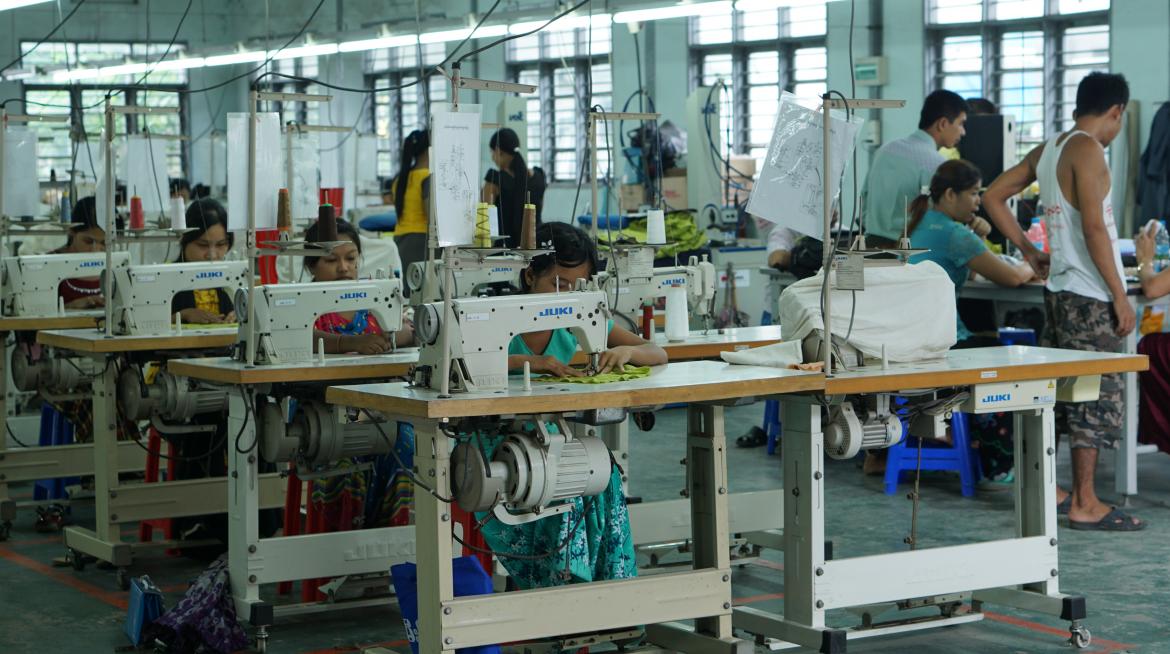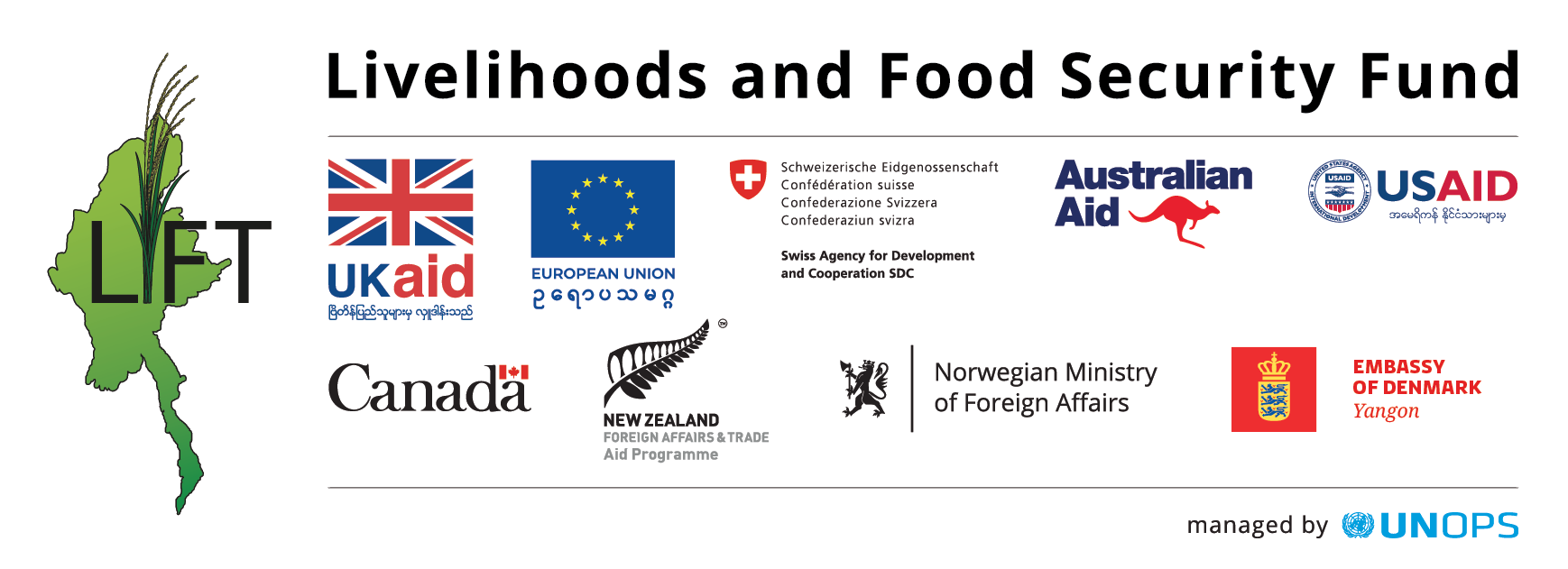
LIFT's project “Linking Labutta to Markets: Increasing Incomes through Agriculture, Skills and Employment” implemented by Mercy Corps, Swiss Contact and Arr Yone Oo, aims to support farmer producer enterprises for service delivery including inputs supply, extension services, equipment and rental hire purchase, access to credit and contract farming with millers. It also gives support to landless households through vocational, business and life skills development and the provision of migration-related information with linkages to Yangon-based employers.
Under the skills and employment component of this project, Swiss Contact provides vocational trainings, one of them is sewing with a motor-powered machine in the garment industry. Young women from the Ayeyarwady Delta interested in working in this sector are recruited to make the move to Yangon to undergo a ten day training. The project supports trainees’ stipends and living costs. Additionally, it provides life-skills training which helps the youth to better understand communications, networking and self-management, especially in an urban context.
In June, LIFT visited a training day of this project. The training took place at the Myanmar Garment Manufactures Association in Insein, Yangon. This batch of 49 women between the ages of 18-35 had come from Labutta and surrounding areas to Yangon to pursue basic sewing machine training. The intensive training course entails two days of theory and eight practical days, during which trainees follow a sewing pattern through timed practice sessions. It is expected that almost all participants will successfully pass the course and go on to obtain factory work, while a few will go back home to re-sit the matriculation exam and finish the promised casual work.
LIFT had the chance to meet and talk to three of the students at the top of their class.
Cho Mar Oo, 34, originally heard about the training from village leaders at a village meeting in Labutta. "I am really excited about the new experience, and my family supports my decision to do this," she says. Cho Mar Oo lost her mother in Cyclone Nargis in 2008 and she is a single divorced mother of a six year old boy. Working as a casual labourer in the village brought an unstable income and it was hard to be the only one providing for her loved ones. "Today is the last day of training and I have confidence that I am ready to work in the factory." She is ambitious to build her skills and get a promotion at the garment factory in the near future.
Nwe Nwe Tun, 27, left her family behind in their village when she came for the training, but was able to join her sister here, who was already living in Yangon, working in the garment industry for 8 years. "I was afraid of the motor machine at first because I had never seen this in our village. It ran so fast," Nwe Nwe Tun says, laughing. She got used to the machine after two days of traning and she even made a pillow case with beautiful patterns on her last day. The training will provide her job security for the future. She keeps in contact with her mother back in the village via mobile phone. "My mom is great. She is the one who builds my confidence to go further. She always encourages me, "You can do it, my daughter!'" The cheerful and hardworking lady, Nwe Nwe Tun dreams of becoming a fashion designer one day.
Shwe Zin, 28, sits down with us wearing a beautiful, fashionable black dress she made for herself. Previously, she had her own tailor shop in her village, but it did not provide her with enough money and she was unable to support her parents and siblings. Though she had 12 years of experience, she felt she needed this training to advance her career and find job security. She is partially disabled, so factory work can be difficult, but she hopes to design clothes one day. She misses her family back home, but has big dreams and expectations for herself. "I learned how to handle this motor sewing machine. I belive this will take me further in my career. I am happy to work in Yangon as I also have new friends." She is encouraging other women from her village to do the training as well. "This type of training is helpful for the women in my village. Working in the factory with these skills, they can earn a regular income." She will support her family with her monthly salary.
Upon successful completion of the ten day training, trainees receive a certificate to show for their success, and all are offered paid positions in garment factories. Other vocational skills trainings offered through this project include auto mechanics. The LIFT project, “Linking Labutta to Markets: Increasing Incomes through Agriculture, Skills and Employment” will run until September of 2018.


